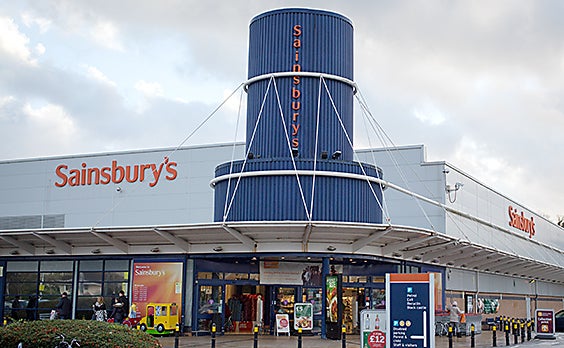Sainsbury's succeeds by focusing on fighting battles it can win, even if that means going toe to toe with Amazon
The grocer has pleased the city with an impressive sales update

Your support helps us to tell the story
From reproductive rights to climate change to Big Tech, The Independent is on the ground when the story is developing. Whether it's investigating the financials of Elon Musk's pro-Trump PAC or producing our latest documentary, 'The A Word', which shines a light on the American women fighting for reproductive rights, we know how important it is to parse out the facts from the messaging.
At such a critical moment in US history, we need reporters on the ground. Your donation allows us to keep sending journalists to speak to both sides of the story.
The Independent is trusted by Americans across the entire political spectrum. And unlike many other quality news outlets, we choose not to lock Americans out of our reporting and analysis with paywalls. We believe quality journalism should be available to everyone, paid for by those who can afford it.
Your support makes all the difference.The best way to handle the challenge posed by the internet, Amazon et al? Attack it.
While other retailers were throwing their hands up in the air - and some are still doing so - Sainsbury’s did that.
Its bosses had a hunt around the sale rails, found Argos, and bought it for a knock down price. They then proved that there was something to be had in the business after all.
The deal looked highly questionable at the time, and not just because Argos was a busted flush that looked like it was in real danger of actually going bust.
Already operating in a brutally competitive market, reeling from the rise of Aldi and Lidl, buying Argos would see Sainsbury's going toe to toe with Amazon, the king of general merchandise.
Military wisdom holds that you’re doomed if you try and fight a war on two fronts. Perhaps Sainsbury’s is the exception that proves the rule. The anti-Napoleon.
Or perhaps it’s just that the company was spurred on by the suggestions that it was the most vulnerable of the traditional big four grocery chains and simply decided the best option to the challenges it faced was to be bold. Better to burn out than fade away.
Nobody’s predicting that Sainsbury's will do either now, and the latest numbers underline the point.
Excluding fuel, sales at stores open at least a year rose by 2.3 per cent. The grocery business was particularly strong (up 3 per cent) thanks to favourable weather and the cute decision to target price cuts at summer favourites such as strawberries.
Clothing roared up 7 per cent, and while general merchandise, into which Argos has been squirrelled away, was the apparent laggard, putting in sales growth of only 1 per cent, the company was at pains to stress that its new toy isn’t yet in need of any new batteries.
“Argos continues to perform well, growing market share, with strong growth in Mobile, Audio and Tech categories and good growth in Core Electricals and Toys,” it declared.
There was nothing about the attempt to gobble up wholesaler Nisa, which is what the city really wanted to hear about, but there’ll be time for that.
The bottom line: It’s tough out there, but we can handle it. As for Amazon, with its grocery ambitions? The message is come and have a go if you think you’re hard enough. You’ll probably find the US grocery market a lot easier than you’ll find ours.
However, what remains true is that Amazon, Lidl, Aldi, they’re actually far less of a threat than the biggest challenge faced by all retailers. It is not the impact of the internet, or the emergence of disruptive competiors. It is not even Britons, and especially younger Britons, prioritising spending on experiences over things. It is an economy run by a Conservative government that doesn’t appear to have the faintest idea of what it is doing, and seems bent on making the worst possible choices at every stage of the lunatic Brexit process.
Sainsbury's fortunes are closely linked to those of a UK economy that is currently showing signs of real strain becasue of that. It explains why the shares have been under a cloud recently.
Unfortunately for Sainsbury’s, there's not much it can do about it. But by fighting battles it has a change of winning, even if that means squaring up to the likes of Amazon, it has at least put itself in the best position it can not to be a casualty when the winter winds really start to blow.
Join our commenting forum
Join thought-provoking conversations, follow other Independent readers and see their replies
Comments